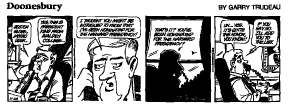The quest for Harvard's twenty-seventh president took shape last July, following Neil L. Rudenstine's announcement on May 22 that he would step down June 30, 2001, after a decade of service. Under Harvard's charter, the Corporation elects the president, with counsel and consent from the Board of Overseers. As in the 1990-91 search that selected Rudenstine, the six Corporation members other than the president invited three Overseers to join the search committee. Members from the Corporation were Robert G. Stone Jr. '45, Senior Fellow and committee chairman; treasurer D. Ronald Daniel, M.B.A. '54; Hanna Holborn Gray, Ph.D. '57; Conrad K. Harper, J.D. '65; James R. Houghton '58, M.B.A. '62; and Herbert S. Winokur Jr. '65, Ph.D. '67. Overseer members were board president Sharon Elliott Gagnon, Ph.D. '72; Thomas E. Everhart '53; and Richard E. Oldenburg '54.
The committee sought advice and nominations in a letter sent last summer to 300,000 faculty members, students, staff, and alumni, plus educators, public officials, and others. Committee members also met with some 300 faculty members, officers, and people outside Harvard, and with groups of students and junior faculty members from throughout the University. More than 500 names were nominated. The committee conducted 16 full meetings, and briefed the Board of Overseers three times. Late in the search, it interviewed several candidates in depth.
Toward the end, the process came under close news scrutiny. In a horse race between the Crimson and the Boston Globe--with the students generally ahead by a nose--the coverage focused on three candidates: Lee C. Bollinger, president of the University of Michigan; Harvey V. Fineberg '67, M.D. '71, M.P.P. '72, Ph.D. '80, Harvard provost since 1997 and previously dean of the School of Public Health; and Lawrence H. Summers, Ph.D. '82. Amy Gutmann '71, Ph.D. '76, Rockefeller University Professor of Politics at Princeton, also drew attention. After the Crimson published a photograph on February 20 of Bollinger emerging from a search-committee meeting at a New York hotel two days earlier, public handicapping tilted toward him as the "consensus" candidate until the final days of the search.
 |
| An Eli take on a Crimson search: Yale alumnus Garry Trudeau spoofed the Harvard presidential succession in "Doonesbury." But did the cartoonist have inside information? Lawrence H. Summers was born in New Haven, when his father was on the Yale faculty. |




